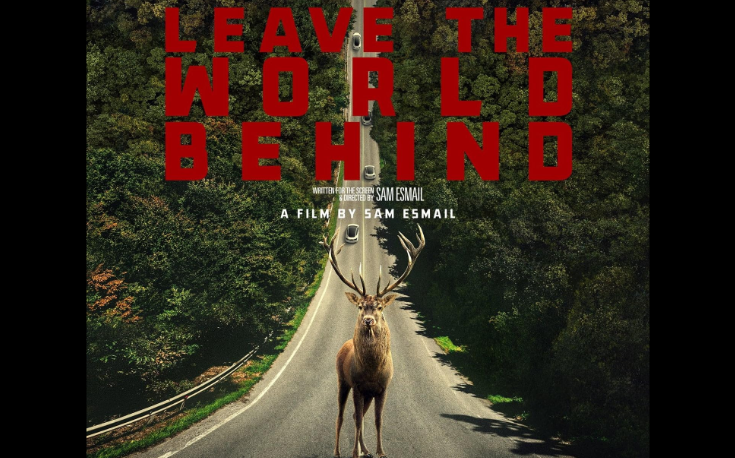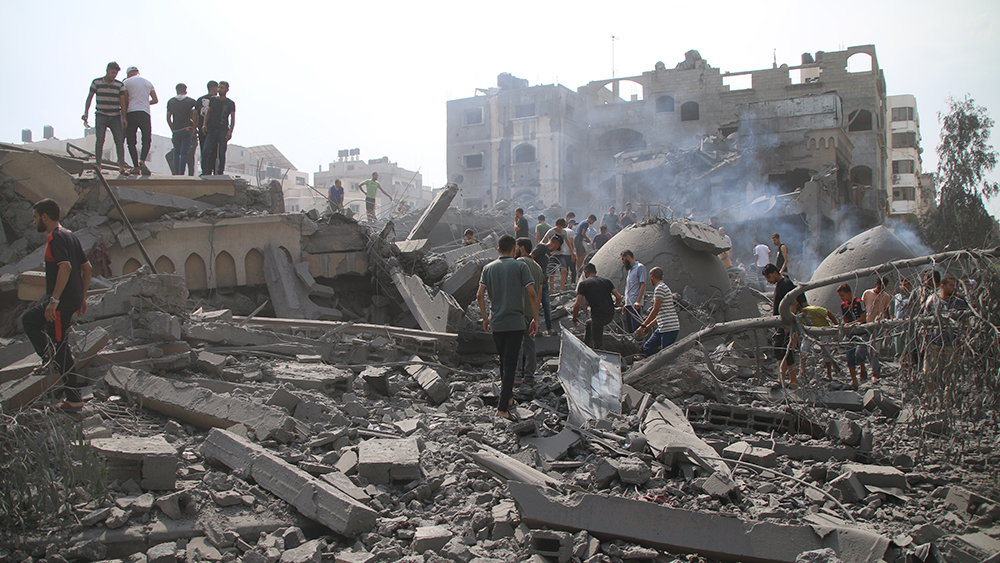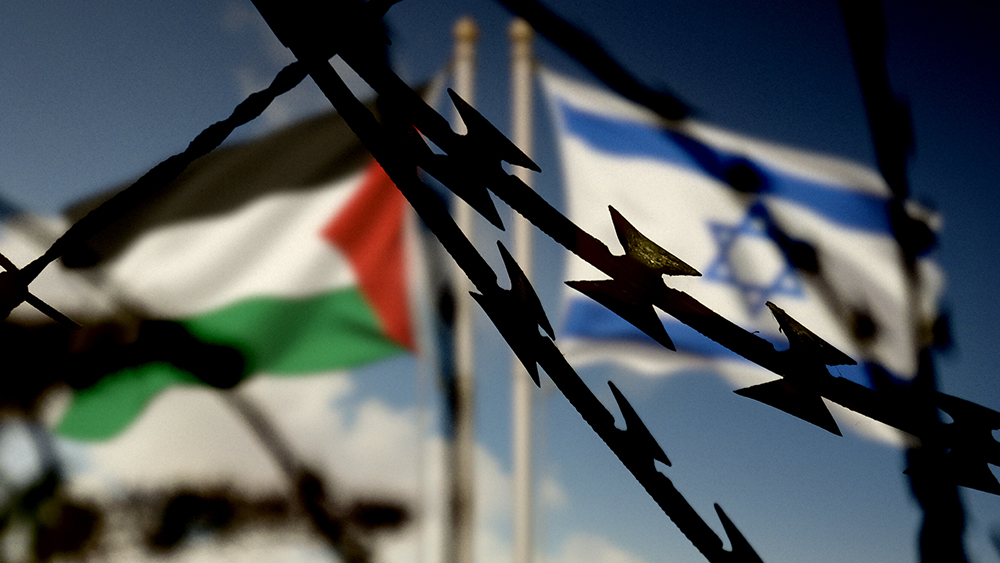 Parler
Parler Gab
Gab
Far more than just a movie with anti-white tropes
However, I would say that the conservative take on this film is very shallow, because I've seen a lot of headlines from conservative media, including conservative alternative media that simply say this is an anti white film that makes white people look bad. And they mostly leave it at that. They're just saying, Oh, this is Barack Obama funding a film that attacks whites. And although there are a couple of scenes in the film, where especially this young, black daughter of the one of the key characters in the film, she's clearly an anti white racist. And she just hates white people. So she's this woke little black girl, basically, who just hates everybody with fair skin. And yes, there are a couple of scenes in the film, with her talking about how you can't trust white people. But that's not what this film is about. In fact, playing off against this anti white racist black girl is the mature woman character, the mom played by Julia Roberts. And this woman, although she doesn't come across as racist, she comes across as a really angry, bitter, mature woman who just hates everybody. It's not about hating black people. It's about hating every person in the world. She's a marketing executive, which actually kind of makes sense. And then there's a character played by Ethan Hawke, who is the husband of the Julia Roberts character, and they live in the city. I think New York City is what they're referring to because the film takes place in Long Island. But the Ethan Hawke character is a male, neutered snowflake, oblivious citizen, who doesn't know how to do anything. In fact, I'm gonna play a scene for you here that reinforces that he doesn't know how to change a tire, doesn't know how to use a firearm, he doesn't know about preparedness or survival or anything. And basically, he is run by his wife, the Julia Roberts character who's clearly in charge of that family. And then there's the character played by Mahershala Ali. I actually think he's the best actor in the film, by the way. I love the work that he has done. But he plays a really sophisticated well educated, well to do black American who owns this house that is sort of rented out in a b&b arrangement to the Ethan Hawke, Julia Roberts family, and they're just guests staying at his house. The Mahershala Ali character, he's the father and he's very polite. He's very tolerant. He's very reasonable. He has a calming personality. He is a de-escalation character in the film, whereas Julia Roberts is an escalation crazy woman in the film, and she does a great job playing that role by the way. But Mahershala Ali does a fantastic job here, bringing some key narratives to this film about preparedness, and community mindedness and how we work together and also helping to explore some of the racial overtones that we'll talk about in a second. Then finally, Kevin Bacon plays the American prepper. At one point in the movie, he's on his porch, I'll actually play the scene for you. He's got an American flag, and he's got a shot gun. He's wearing a baseball cap, and he's the All American guy who's the prepper. He's a handyman, he does contracting work, and he's a hands on guy, he knows how to do stuff. You know, he can repair plumbing, for example, he can probably repair car engines and whatever. So he's got food and ammo and who knows how much gold and whatever, and medicine we find out in the film. And yet, he is depicted as very much a you're on your own type of prepper. He says that what's mine is mine. Get off my porch, get off my yard, good luck, that kind of thing. So he is the, the lone wolf prepper, who is going to defend his property with his shotgun, which, frankly, may be necessary, depending on how crazy things get. So that's kind of the mix of the key characters of the film. And there are also three children involved if you're wondering about the characters, the young daughter and son of the Julia Roberts family, and then the the young, racist black daughter of the Mahershala Ali character. And I don't recall all the names of the characters in the film. I just refer to them as the names of the actors who play the roles. So the film is not a shallow, racist anti white film, even though it's sometimes depicted as that. The film was actually very thoughtful. And I thought it was very well done.The cyber attack that brings down America's power grid and telecom infrastructure
What the movie explores is a scenario where there are infrastructure attacks on the United States of America that take down telecommunications, and are designed to cause chaos and confusion among the American people in order to cause uprisings and revolts, and ultimately, a civil war in the country, There are effects of psychological warfare depicted in the film, for example, a small airplane dropping leaflets that appear to contain Arabic writing that says Death to America. And then, at another point in the movie, the Kevin Bacon character says that he knows somebody in the military that saw similar leaflets dropped in California, that actually contained writing that was either Korean or Chinese, he couldn't tell the difference. So the disinformation aspect of warfare is covered in this film. But most importantly, this film witnesses the process that families, civilians go through in America, when they don't know what is happening, but the services and infrastructure that they have come to depend upon are no longer working. They don't have the normal access to information. You know, the news reports aren't working, the internet isn't working, they're not getting information on their phones, except in one scene, there are some phone emergency texts that come through. But other than that, there's really no communication in the film. There is a bunker in the basement of one home in the film where there's some kind of military messaging coming across that says, as I recall, Washington DC is under attack. And this is a red alert situation, the nation is under attack, prepare accordingly. I think this is where the film does a really good job, or the writers do a great job, they show these people not knowing what is happening, they attempt to continue with their normal vacation activities. They're swimming in the swimming pool, they're taking walks, and they're just trying to live out a normal vacation, not realizing that their world is coming to an end, not realizing that they probably don't have enough food to last very long. That was one of the questions that I had watching this film was how come nobody in this movie is wondering where the food is going to come from? When it comes to a prepping situation, you have to ask, how are you going to feed yourself? I also kept wondering, Why were these people going out? They were venturing out into the unknown areas around this vacation home, they were venturing out without firearms. Which I just found horrifying. Because if I were going into an unknown situation, well, in fact, even when I'm going into known situations, you better believe I have a firearm with me. And not just one either, you know, a pistol on my hip, and then some kind of carbine in the vehicle or even maybe a medium range rifle in the vehicle depending on what I might be anticipating. But these people had no guns whatsoever, and they had no plan. Now, the black father in the film played by Mahershala Ali, he apparently knew something about what was about to go down because one of his clients in the film was a defense contractor and the defense contractor was moving lots of money around in anticipation of some kind of big cyber event. So he knew something was going on. But he himself also was not a prepper. Nobody in this movie was a prepper except for the Kevin Bacon character with a shotgun and the American flag on his porch. And frankly, he looked like he could probably handle himself. So I want to play a segment of this for you. It's about two minutes or a little longer than two minutes. That shows you the kind of tension. This is some of the prepper versus non prepper tension and also the mix of races in this film. To just give you a little taste of this I found this to be really the most emotionally impactful scene in the film. clip plays So several important things to notice about this clip. The deer are actually representing humanity. The humans are representing animals. That's what I find fascinating here. So the deer are really more organized, they're community minded, they're working together, they're more rational, and de escalatory. So the so-called animals are inquisitive and intelligent and very capable of surviving. The humans, especially those the two women that you saw in that clip, the the white woman, the Julia Roberts character, and then the younger, black girl. There they are acting like crazy animals having no idea what to do. Having no way to defend themselves, just feeling afraid and unsure. And all they can do is scream and dance around like animals. And even the deer think these humans are crazy. Let's get out of here. This is a waste of time. So that's notable. There's even one juxtaposition there where the Ethan Hawke character is screaming, I'm trying to reason with him. And then they show the two women that are screaming like animals in front of the deer. And the deer are probably thinking, gosh, we're trying to reason with these humans, but they're insane.Don't be like the characters in this film who have no idea how to survive
But the most important line in that segment is when the Ethan Hawke character says, I have no idea what to do right now. And he says I can barely do anything without my cell phone and my GPS. And he even says, quote, I am a useless man. But my son is sick. And I think this self awareness of being a useless man, at least useless in this circumstance, is especially notable. Because I think there are a lot of people in America today that do realize that they don't know how to do anything. But they have no choice other than just to be desperate and beg for help ask for help or maybe try to coerce help when they get into a difficult situation. And so what you really have in this scene is the Mahershala Ali character, the black man, even though he's holding a gun, he is the voice of reason. The Ethan Hawke character is the voice of desperation. And uselessness. And then the Kevin Bacon character is the voice of Well, I told you so. And isolationism. So this is almost presented as a riddle, which is, what would you do in this situation? What would you do? Now we know that the Kevin Bacon character has medicine that can help the boy the Son, and ultimately the way the scene ends. By the way, this is not a spoiler. And ultimately, the way this scene ends, I'm not spoiling the film for you, believe me. But it ends by the Kevin Bacon character selling a few pills, some kind of medication to the Ethan Hawke character in exchange for seemingly $1,000 in cash. Then the Kevin Bacon character even laments the fact that he's accepting cash because he says he doesn't know how long cash is going to be good anyway, depending on how badly things have broken down, but he does sell some medicine for cash. So there is a actually an exchange that takes place.The film presents a riddle: How would YOU handle a cyber attack grid down scenario?
But the question to you is, what would you do if you are in Kevin Bacon's shoes, in this situation or in any of these characters shoes? Because remember, there's no one else around, there's not a crazy mob that's trying to loot this home where Kevin Bacon lives or his character. He could easily say, Yeah, I'm happy to help you to the extent that I can, especially if it's to help save the life of your son, you know, what do I have that could possibly help you? And that tends to be my answer. By the way, if I have something that I know can help other people, and if I can offer it to them in a way, that's not going to compromise my own safety, and in a way that doesn't encourage mass looting of my property, let's say, then I'm happy to give supplies away. But then again, you probably know this, if you've listened to me for very long, I'm a community minded prepper. And I've been blessed with enough resources to be able to purchase a lot of things at scale with the intention of being able to share them with the community. Whereas a lot of people may not be in that position. And I understand that, especially those who are at the lower end of the economic scale, let's say they don't earn a lot of money. And, of course, food inflation is rather horrendous these days. So their preparedness activities may have been quite limited, they may only have enough for their own families, and quite literally not enough to share with others. But why not try to help in other ways? You know, maybe you have a book on medicine that could help them diagnose the problem. Maybe you have clean water with a water filter, and you could offer them water in case they've run out of water. Maybe you have, you know, something that's very affordable such as rice supplies, for example to offer. Or maybe you can suggest that we work together, that we're all going to be safer if we're under the same roof. Potentially, I guess it's up to the circumstances and the people who are involved, you might not want to invite strangers in your house. But at some point, if you're in some kind of collapse scenario, there is strength in numbers. One of the themes of this film is that these people eventually set aside their racist differences. Well, at least the young black girl, she's clearly an anti white racist. But even the Julia Roberts character sets aside her hatred in the interest of trying to figure out how do we all survive this together. And that's a really critical thing that we all need to understand. ... I think it's a film that explores the collision of some anti white woke racism, as well as just people hating individuals, as well as preppers versus non preppers. Escalation versus de escalation, desperation versus being calm, knowing versus not knowing, you know, panic, versus, you know, being chill and all these themes. That's what the movie explores. And I think it does actually a good job at that. The takeaways from this movie, I think, are rather obvious. The first takeaway is, don't be like the Ethan Hawke character if you're a man, or woman. Don't be like the Julia Roberts character either. Don't be like either one of those characters because they are horrifically unprepared for what's happening in society. And you really don't get much traction running around just yelling and screaming and accusing people all the time, especially in face to face interactions. I mean, think about it. What would you do in a scenario if you were at a b&b rental home on vacation and there was a massive cyber attack on the world and that around you? What would you do? How would you treat people? Would you just get angry and start accusing everybody and start panicking? Or would you try to create organization? You know, how are we gonna survive this? Let's list our basic needs here. Let's assess an inventory of everybody's skills. How about that? You know, who here that has medical knowledge? Who has firearms knowledge? Who can stay up at night and do a night shift? You know, for security? Who is good with radios and comms? These kinds of questions. Who has the best firearm here? Does anybody have any night vision? You take inventory and then you figure out how we're going to work together to survive. And then also, what skills can we teach each other right now, so we can cross train and have redundancy. And also, what are the likely threats that we are facing here together? And how can we best strategically address those threats in a way that we all survive? The other big takeaway from this is, Don't be caught unprepared. Because we are probably facing major cyber attacks. And I'll cover that in the next section here. But this movie, in the minds of many people is a type of predictive programming. It's putting these themes out there, because this is exactly what is being planned. And it's very likely that a false flag cyber attack event is going to be rolled out and blamed on China. That's my analysis. And that's what I'm going to cover in the next segment here. We'll talk about some specific things that you can do to prepare for that. And things that will also help you prepare for other scenarios, as well. But that's my summary of the movie leave the world behind. It's definitely worth watching. I'm not endorsing all the themes in it, I'm not endorsing, whatever symbolism or cultism, that people might find it and I'm just saying that it's worth a watch, because it makes you think about how you would handle these situations. And in doing so it may help you more efficiently prepare. In doing so, it may help you better prepare for the collapse that's coming. Or it could be actually a multifaceted collapse. It might not be one collapse, it could be a financial collapse, and a cyber attack, a grid down collapse and a food collapse and who knows what else. But watch this movie. And think about your own situation and what you could do better. To not only survive yourself, but also to help the people around you survive because again, remember, together is better. And we all survive with a higher, higher chance of survival. If we can figure out how to work together, whether that's in one household, a family unit, or a neighborhood or a county or a small town or whatever the case may be figured out how to work together and you're going to have a much better chance of getting through all this. Listen to the full broadcast at this link on Brighteon.com once it posts.Head of Israeli town suggests flattening Gaza Strip like Auschwitz concentration camp
By Belle Carter // Share
U.S.-based rights group calls on ICC to investigate Israeli commanders’ WAR CRIMES
By Ramon Tomey // Share
Texas Gov. Abbott begins flooding sanctuary cities with chartered flights of illegal immigrants
By Laura Harris // Share
Question: Who wears a MAGA hat to commit a hate crime? Answer: The Feds…
By News Editors // Share
Major shipping giants HALT Red Sea route following Houthi attacks on shipping vessels
By Ethan Huff // Share
Economist predicts 2024 will bring “biggest crash of our lifetime” to U.S. markets
By Ethan Huff // Share
Governments continue to obscure COVID-19 vaccine data amid rising concerns over excess deaths
By patricklewis // Share
Tech giant Microsoft backs EXTINCTION with its support of carbon capture programs
By ramontomeydw // Share
Germany to resume arms exports to Israel despite repeated ceasefire violations
By isabelle // Share










